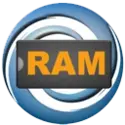DFSee 16.9
Free Download DFSee 16 full version it is a generic disk, partition and filesystem utility for maintenance and data-recovery. Create an exact clone or a compressed imagefile from your whole disk or a single partition. BROWSE through directories, and view or copy/recover files directly from the browser. It supports partition-tables (FDISK, LVM) and filesystems like (V)FAT, FAT-32, EFAT, HPFS, NTFS, JFS, EXT2/3/4, HFS+, and some functionality for ReiserFS, XFS, SWAP and GRUB.
Overview of DFSee 16 Benefits
An often used function here is the DFSDISK command/menu-item/script that automate the collection of needed information to ‘UNDO’ an accidental FDISK operation or other partitioning related disasters. Another important feature is the ability to save and restore ALL partitioning information in a regular file that you can keep as a backup on a diskette so recovery operations will be MUCH easier.
IMAGING Whole disks, partitions or parts of partition can be saved to an imagefile, either RAW or in a compressed format. The imagefiles can be restored to the same or a different location resulting in backup or copy functionality. The compressed images can be opened for directory/file browsing, to view or to retrieve individual files from such a backup image. This works for partition images as well as full-disk images.
Overview of DFSee 16 Features
- As a replacement for the classic FDISK and (OS/2) LVM programs, with support for MBR as well as GPT style tables.
- DFSee is a complete replacement for the partitioning tools as found with DOS, OS/2, Win9x, Windows-NT/2000/XP/7/8/9/10 and Linux.
- It is also a replacement for the LVM utility that comes with eComStation, ArcaOS 5.x and all OS/2 versions 4.50 or newer. Only some obscure features like disk-spanning are not supported.
- Apart from the standard create/delete type of functions there are a lot of special commands to display information and fix all kinds of problems related to partition-tables and LVM information. A fully interactive partition-table editor is included as well (PTEdit), both for classic MBR-style partitiong as the more recent GPT (Guid Partition Tables).
- Finally, the FDISK functionality combined with the scripting capabilities is being used by large organisations for automatic (and unattended) roll-out scenarios.





